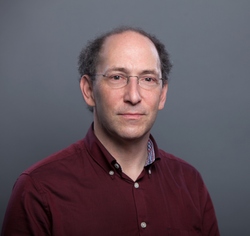Career
Wolfram has been a proponent of Computer-Based Math—a reform of mathematics education to "rebuild the curriculum assuming computers exist." [9] [10] [11] [12] and is the founder of computerbasedmath.org. [13] [14]
He argues, "There are a few cases where it is important to do calculations by hand, but these are small fractions of cases. The rest of the time you should assume that students should use a computer just like everyone does in the real world." [15] And that "School mathematics is very disconnected from mathematics used to solve problems in the real world". [16] In an interview with the Guardian he described the replacement of hand calculation by computer use as "democratising expertise". [17] He argues that "A good guide to how and what you should do with a computer in the classroom is what you'd do with it outside. As much as possible, use real-world tools in the classroom in an open-ended way not special education-only closed-ended approaches." [18]
In 2009, he spoke about education reform at the TEDx Conference at the EU Parliament. [19] [20] and again at TED Global 2010 where he argued that "Maths should be more practical and more conceptual, but less mechanical," [21] and that "Calculating is the machinery of math - a means to an end."
In August 2012, he was a member of the judging panel at the Festival of Code, the culmination of Young Rewired State 2012. [22] Wolfram is also part of Flooved advisory board. [23]
On 10 June 2020, Wolfram released his first book, The Math(s) Fix: An Education Blueprint for the AI Age. [24] [25] [26] The book summarises Wolfram's thoughts on the current state of mathematics education and sets out a vision for a new core subject based on computational thinking.
In October 2021, Wolfram appeared on the *Messy and Masterful* podcast, discussing his Computer-Based Math initiative and stating that “when the automation gets good, you can go much further by doing it on the machine than you can by hand.” [27]
Wolfram Research
Wolfram co-founded Wolfram Research Europe Ltd. [28] in 1991 and remains its CEO. [29] In 1996, he additionally became Strategic and International Director [30] of Wolfram Research, Inc., making him also responsible for Wolfram Research Asia Ltd, and communications such as the wolfram.com website.
Wolfram Research was founded by his brother [31] Stephen Wolfram, the maker of Mathematica software and the Wolfram Alpha knowledge engine. [32]
Wolfram has led the effort to move the use of Mathematica from pure computation system to development and deployment engine, [33] [34] instigating technology such as the Mathematica Player family and web Mathematica and by pushing greater automation within the system. [35]
He has also led the focus on interactive publishing technology [36] with the stated aim of "making new applications as everyday as new documents" [37] claiming that "If a picture is worth a thousand words, an interactive document is worth a thousand pictures." [38] These technologies converged to form the Computable Document Format [39] which Wolfram says can "transfer knowledge in a much higher-bandwidth way". [40]
This page is based on this
Wikipedia article Text is available under the
CC BY-SA 4.0 license; additional terms may apply.
Images, videos and audio are available under their respective licenses.
